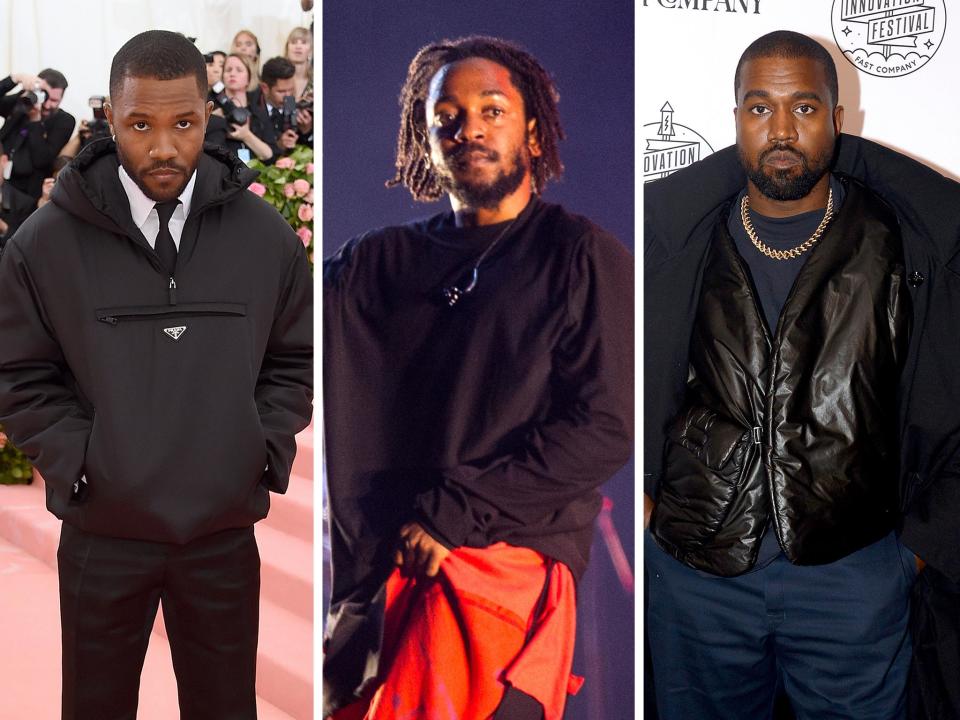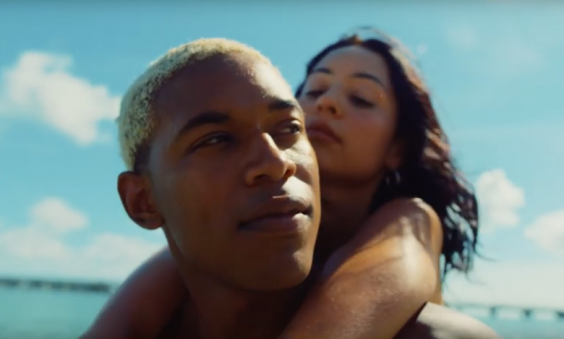How the indie film Waves managed to get Kanye West, Kendrick Lamar and Frank Ocean on its soundtrack

It can’t be easy for an indie movie to secure the rights to a Kendrick Lamar song. The Pulitzer Prize-winning rapper is in high demand, and a bid for his music is often going to require a lot more money and clout than a small film can afford.
Trey Edward Shults knew all that when he inserted a Lamar music cue into the screenplay for his turbulent family drama Waves. He also knew that when the time came to shoot the scene in question, a bonfire party where a group of high schoolers sing the lyrics to Lamar’s “Backseat Freestyle”, he still hadn’t acquired the rights to the song.
No matter. Shults filmed it anyway and crossed his fingers.
“This movie was risky in a lot of ways, and we just wanted to take a big swing and go for it,” Shults says. The director was so wedded to the idea of using Lamar’s song in the scene that he didn’t even bother filming it any other way: “My back-up plan if we didn’t get it was just going to be to cut the moment. It would have been awful!”

Fortunately, by the time Lamar agreed, he found himself in good company. The Waves soundtrack is full to bursting with some of the heaviest hitters in music, featuring songs from Kanye West, Radiohead, Frank Ocean and Tame Impala. That’s an impressive collection for any movie, let alone one bankrolled by A24, a speciality film studio with a hip reputation but a penchant for keeping budgets low.
So how did Waves woo so many top-tier artists?
“We didn’t allow them to see dollar signs,” says veteran music supervisor Randall Poster, who worked with Meghan Currier to clear the rights for nearly three dozen songs for the film. “I think everybody knew going into it that we were going to spend a fair amount of money on the music, but what you try to impress upon them is that this is an artistic undertaking with a visionary director, and I think artists largely want to be involved in those kinds of projects.”
Shults had adopted a score-driven approach on his first two films, It Comes at Night and the critically acclaimed Krisha, but when the time came to write Waves, which follows a high-school wrestler (Kelvin Harrison Jr) and his sister (Taylor Russell) as they navigate love and tragedy, Shults knew he wanted the movie to sound like the kind of Spotify mix his characters would make themselves. When he sent the script to his actors, he even embedded music cues in the file so they could listen to the songs he hoped to add to each scene.
“If you separated all the tracks into a playlist, there’s a narrative, and an arc is being told from track to track that mimics the movie,” Shults explains. “But there’s a fine balance, because if you do it wrong, it can be really on the nose.”
Still, he aimed high. Ocean is one of the most elusive figures in music, but Shults still hoped to secure five of his songs, more than Ocean had ever cleared for a movie. Convincing him took months. “His team said it wasn’t looking good because he was in a creative bubble, and then they asked if I could reduce it to one song,” says the director, who confessed, “I started having a panic attack.”
Eventually, after Shults sent a letter and a rough cut of the film to Ocean, he heard that the singer-songwriter had found time to watch it, and was willing to clear all his music at a reduced rate. “I don’t know what we would have done without Frank Ocean,” Poster says. “When we were able [to get those songs] I think we breathed a huge sigh of relief: ‘OK, we have really the emotional spine that we’ve been looking for.’”
The trickiest negotiations came when Shults sought clearance from West. The filmmaker is a big fan of the mercurial rapper — when Krisha was nominated for an Independent Spirit Award, Shults wore a shirt to the ceremony emblazoned with art from West’s album Yeezus – but clearing even one of his songs can be costly. “It was intense,” the director says.
After months of tenuous back and forth, West fired the management team handling the negotiation, and Shults had to start from scratch. Eventually, West sent word that he would approve only one song cue – “I Am a God”, which Shults hoped to play over a particularly fraught moment – with a unique complication: since the rapper is currently turning his back on secular music, Shults would have to use a “clean” version of the song.
This proved easier said than done. “I don’t even know if a non-explicit version exists,” Shults says, laughing.
As “Waves” neared its completion date, Poster and Currier raced to contact other artists who had a hand in West’s song, hoping that the rapper would eventually capitulate. “Until you clear the primary artist, you’re not going to get a response from the people who own 10 per cent of the song,” Poster said. Fortunately, West eventually waived permission to use “I Am a God”, and the music supervisors managed to track down every other stakeholder, securing the song for a centrepiece sequence of the film where Harrison’s wrestler, high on pills, is driven to an emotional breaking point.
After all those hectic negotiations, would Shults mount a new film without the songs secured first? “At least right now, the last thing I want to do is another soundtrack movie,” he admits.
But he’s pleased that in the end, he got nearly every music cue he’d first imagined when writing the script. “Someone told me it was like I made a musical, but it’s the camera doing the dancing,” Shults says. “I love the idea of that.”
© New York Times

 Yahoo News
Yahoo News 